'Secret order' authorizing RCMP's covert Cold War wiretapping program released after 65 years
Government backtracks, shares details of Canada's first domestic surveillance operation
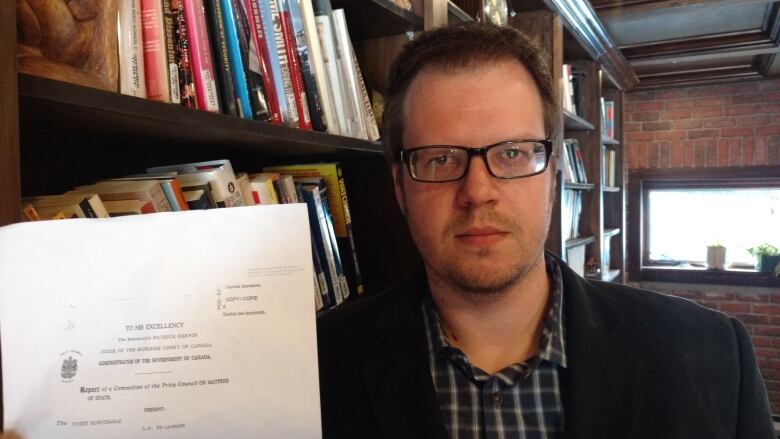
The "secret order" that authorized Canada's first warrantless domestic wiretapping program at the dawn of the Cold War threatened five years in prison to anyone who revealed the dragnet's existence, the newly released document shows.
The government only confirmed the 65-year-old document's existence in December after CBC News published a story about Canadian historian Dennis Molinaro's research. He'd found top secret documents about the program, code-named Picnic, but hit a bureaucratic wall while trying to obtain the key document.
The public and Parliament were never informed that Prime Minister Louis St-Laurent and three senior ministers signed Privy Council order 3486 in 1951 forcing telephone companies to wiretap any suspects deemed "likely" to communicate "for purposes that may be prejudicial to the security or defence of Canada."
The policy was adopted at the height of the Korean War and amidst fears Soviet spies had infiltrated Canada. It allowed the RCMP to target suspected communists, Soviet-sympathizers and others deemed "disloyal" or "subversive."
Government flip-flop
Molinaro stumbled on references to the operation and to secret order 3486 while doing research in February. The Trent University professor spent the next yearsearching for more information but was repeatedly rebuffed by the Privy Council Office, which in November told him it would neither "confirm nor deny" the existence of the order.
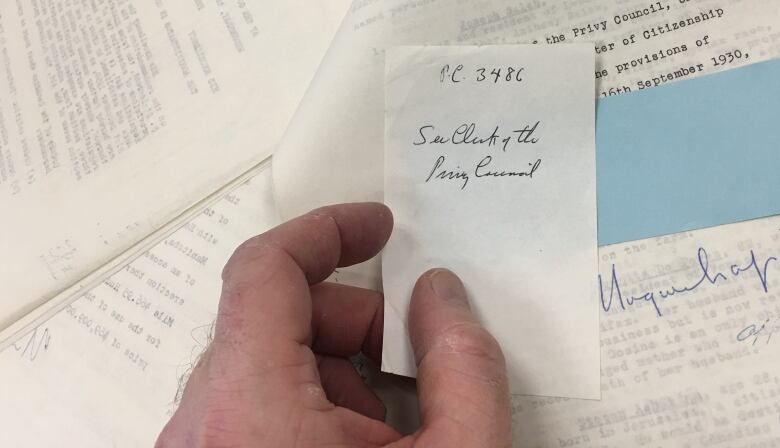
A day after CBC News published itsstory about Molinaro's research roadblock, Privy Council officials told the historian they'd located the wiretapping order and would release it.
"Why couldn't this have taken place earlier?" Molinaro told CBC News lastweek after receiving the document. "Instead of giving me some kind of James Bond-ish answer of 'We can't confirm or deny the existence of the document.'
"Historians shouldn't have to go to the national media to access historical documents."
'Definition of a secret law'
The secret order signed by St-Laurent and his ministers of justice, national defence and citizenship calls for five years in prison and fines of $10,000 for anyone who reveals the existence of the program.
It empowered the justice minister to identify targets for surveillance and then to "require" telephone companies eavesdrop and provide records to the RCMP.
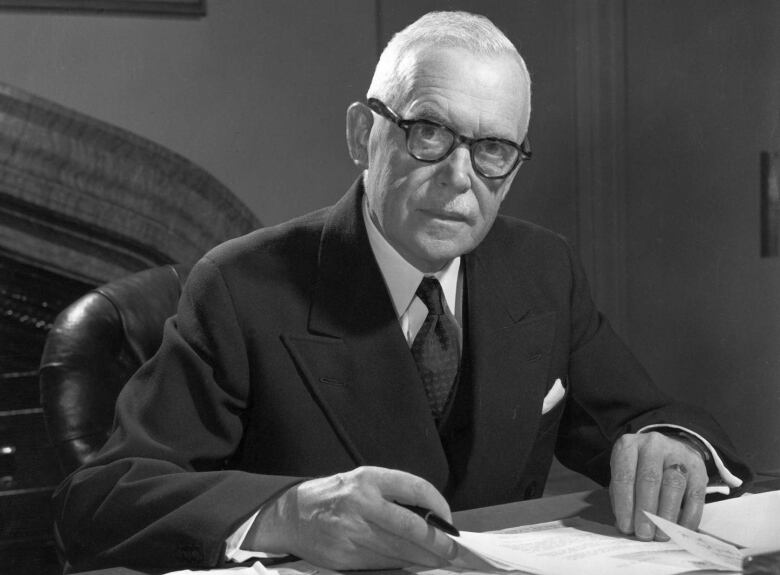
It also includes the following provision that shocked Molinaro: "Nothing in any Act of the Parliament of Canada or of a legislature or in any enactment made thereunder or in any other law shall be deemed to limit or affect the operation of this Order."
"It's not something you expect in a democracy," Molinaro said. "It shows the creation of almost a secret state outside of Parliament or outside the realm of the public that also claims to exempt itself from other laws."
Christopher Parsons, a privacy and telecommunications researcher at the University of Toronto's Citizen Lab, calls the order "the definition of a secret law."
"It's a decision of the government of the day to permit itself to undertake activities that may actually have violated the law of Canada," he said. "That inherently is deeply problematic. In essence you had a government that was authorizing activities that could never be curtailed by law."
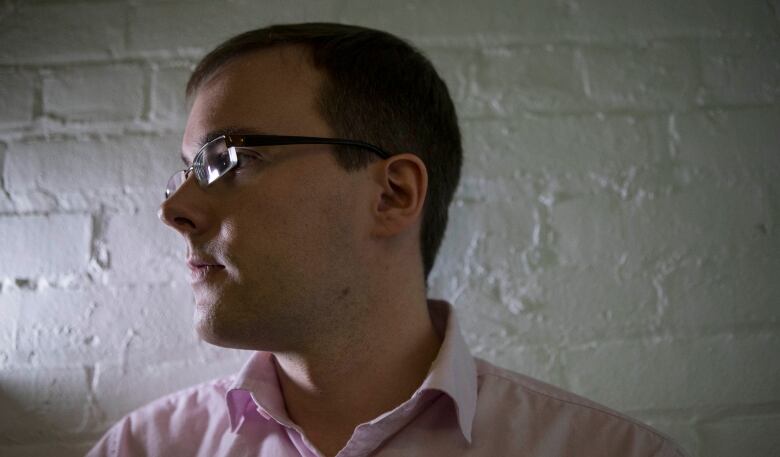
As he points out, operation Picnic predates Canada's Charter of Rights and Freedoms by three decades.
"The '50s were a different time from today, one would hope," he said. "But it doesn't take much to look around the world and when you do see executive bodies start making law themselves and bypassing legislative or parliamentary bodies it can lead to very dark places for those countries and their political systems."
Historians shouldn't have to go to the national media to access historical documents.- Historian Dennis Molinaro
Historian Molinaro says his research, which will be published in the September issue of the Canadian Historical Review, found police had been using wiretaps in criminal investigations for years before Picnic, but in 1947 the courts ruled police needed specific evidence to justify eavesdropping.
He says government officials likely feared the courts and the public wouldn't have approved of Picnic, so they kept it secret for political reasons. He also suspects police feared tipping off would-be spies or communist plotters.
By 1954, the fighting was over in Koreaand the emergency powers legislation that authorized the secret order was set to expire. But Molinaro discovered the government and RCMP opted to secretly keep the wiretapping program going during peacetime using Canada's Official Secrets Act.
Other historians have documented the RCMP's warrantless surveillance activities through the 1960s and '70s, before the Pierre Trudeau government overhauled wiretapping and privacy laws and ultimately launched the McDonald Commission in 1977.
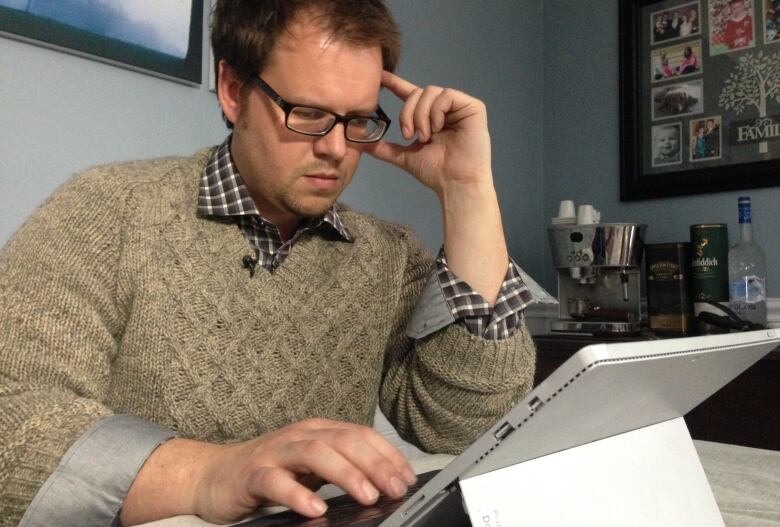
A spokesperson for the Privy Council Office told CBC News last month that officials try to release information to the public and Library and Archives Canada in a timely manner, but reviewing materials and obtaining clearances from security agencies can be time-consuming and complicated.
The Privy Council Office wouldn't explain why it rejected Molinaro's requests for the secret order or why it changed its mind in December.
- CBC INVESTIGATES| Code-name Picnic: Canada's secret Cold War wiretapping program
- Documents reveal how St-Laurent government extended secret wiretapping
Parsons of the Citizen Lab says the document is a piece of Canadian history that the public should see, particularly since the federal government is reviewing Canada's national security regime, including proposals for greater oversight of surveillance agencies.
"Canada has warts. We know this. But as Canadians we need to know our history as opposed to gloss over what might be more concerning or problematic."












_(720p).jpg)


 OFFICIAL HD MUSIC VIDEO.jpg)
.jpg)



























































































